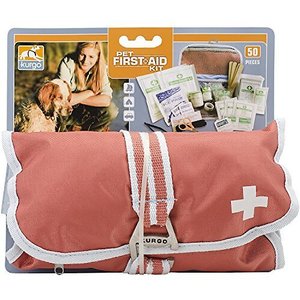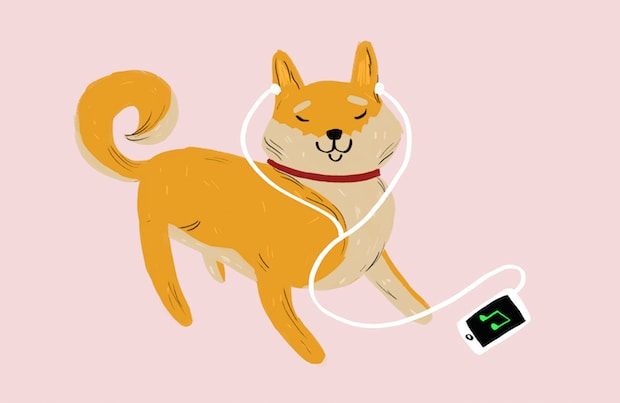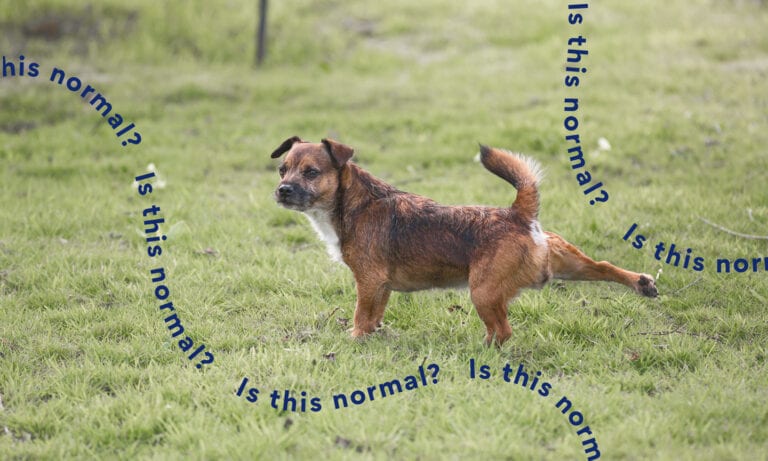A dog bite takes a split second to happen, and if your dog bites someone, it can haunt you, your dog, and the person who was bitten for a long time. You may have to navigate potential animal control or legal action, local dog-bite laws, and possibly a personal injury claim, all while thinking to yourself, "I can't believe my dog bit someone."
Don't panic, and keep reading. We've got advice from an attorney specializing in dog-bite cases, as well as insurance, veterinary, and medical experts.
Disclaimer: While this article offers a general idea of what to expect in a dog bite situation, it is not intended to take the place of legal counsel or provide legal advice.
In This Guide:
What To Do if Your Dog Bites Someone
If your dog bites someone, immediately move them away from the person.
Remain calm. This sounds cliche, but if you're visibly upset, that agitates your dog even more.
Be sympathetic and caring to the injured person. (Unless, of course, they are an intruder on private property or a burglar—then call 911.)
"If your dog bites somebody and they're wounded, don't think about liability, don't think it might cost you money, focus on the victim at that point, and get help for them," says Jeremy Cohen, pet law attorney and founder of the law firm Boston Dog Lawyers. "They need to know you're taking their injury seriously."
Though a dog bite will likely be an upsetting situation, try to:
- Trade contact information with the injured party.
- Get names and phone numbers of witnesses.
- Note what happened just before the bite occurred.
- Take pictures and videos of the dog bite and the scene.
- Cooperate with police or animal control.
- Find out if there is a Ring® camera or surveillance video of the dog-bite incident.
- Get proof of your dog's rabies vaccination.
- Only pay for property or medical expenses with evidence and an agreement.
"You shouldn't exchange any money at the scene," Cohen says. "You should invest in an attorney because if you don't get some type of written agreement in place, the bite victim might say, 'I need $500 more every couple of weeks.'"
The average dog-bite claim in 2022 was $64,555, according to the Insurance Information Institute.
"Any dog can bite so be sure your renters or homeowners insurance policy has liability coverage for your dog,” says Janet Ruiz, director of strategic communications at the Insurance Information Institute. "Talk to your insurance agent or company about the best coverage for you."
What’s the Law for Dog Bites?
Strict Liability
Strict liability is the approach many states take, which generally means you're responsible if your dog bites someone unless the person bitten was teasing or tormenting your dog or trespassing.Comparative Negligence
Some states' laws compare the roles everyone involved in a dog bite played. If the victim's behavior contributed to the circumstances, they'll get less damages."Did the dog bite victim just give your dog a hot dog without permission, and her hand got bit? In that case, the victim might be 30-percent responsible. So that can really reduce what you might have to pay out," Cohen says.
One-Bite Rule
The one-bite rule means you are not responsible the first time your dog bites someone. But if your dog has a history of aggressive behavior and is likely to bite or bit someone before, you might have legal problems."The one-bite rule was a way to say, 'Hey, I had no idea my dog would bite,’" Cohen says. "It's not available in most states, but everybody thinks it's available."
Some municipal and county governments have “dangerous dog” laws that allow officials to order an aggressive dog be euthanized after a hearing.
If you believe you have a claim or questions, call an attorney licensed to practice in your state for legal advice.
How To Get a Dog To Stop Biting
Can you get your dog to stop biting? Possibly.
Figure out what prompted the bite incident. Did a toddler fall on your dog? Or was someone simply passing you on the sidewalk?
Asses the severity of the bite. Did the person need medical care? If your dog may have been behaving badly, get professional help.
"Don't make excuses for your dog," says Katherine Houpt, Ph.D., veterinary behaviorist and professor emeritus at Cornell University's College of Veterinary Medicine in Ithaca, New York. "If the dog has bitten someone, that is serious."
Instead of going right into a panic attack (and who wouldn’t want to!), jump on these next steps:
See Your Veterinarian
Make sure there's not a medical issue. Sometimes undiagnosed conditions can cause your dog to behave differently than they normally do.
Call a Veterinary Behaviorist or Dog Trainer
Your veterinarian may recommend additional input from other specialists, such as a veterinary behaviorist or positive-reinforcement, pain-free dog trainer. Be upfront with anyone working with your pet. Say, "My dog bit someone,” and discuss your dog’s bite history.
A veterinary behaviorist or trainer may be able to help you:
- Evaluate your dog's behavior and why the bite happened.
- Identify triggers and body language that show your dog is uncomfortable.
- Create a positive-reinforcement behavior modification plan to help prevent your dog from biting.
- Conduct training sessions with you and your dog.
For example, if your dog runs snarling at the mail carrier, you and the trainer can teach them to associate something good with the mail carrier, like treats. The goal is to modify their response to their target so that, eventually, they might look forward to seeing the mail arrive. They'll think mail time equals treat time.
Eliminate the Trigger That Caused the Bite
"Unless you remove them from the circumstances that led to the first bite, they'll probably bite again," Dr. Houpt says. "Don't put them in that situation again; don't set them up to fail."
If your dog bit the cable guy, put your dog in their crate the next time a stranger comes over. If you're throwing a party, keep them away from the crowd. Learn more about crate training.
Discuss Dog Anti-Anxiety Meds With Your Veterinarian
Your behaviorist may recommend anti-anxiety medication paired with training to take the edge off their reaction to triggers. Drugs that make your dog drowsy may be helpful for short-term use. Always speak with your veterinarian to determine whether medication is right for your pet.
"You may have to use sedation to reduce their aggression for the few hours that you're going to have company," Dr. Houpt says.
Basket Muzzle Train Your Dog
If your dog lunges at people or other dogs or is deemed dangerous by local officials, they may have to wear a basket muzzle.
"Training your dog to wear a muzzle doesn't hurt them; there are all kinds of videos showing you how to do it," Dr. Houpt says. "You should have a good attitude instead of, 'Oh, I'm so sorry, I have to do this to you.'"
Curtail Puppy Biting
If you have a nipping puppy, train your puppy to stop biting before the pup grows up and the bites become more serious.
What To Do if a Dog Bites You
Medical experts say if a dog bites you and breaks the skin, make sure the dog is up to date on their rabies vaccination. If you run into difficulties, report the bite to animal control, who will try to get information about the dog’s rabies status.
After a bite, most dogs will be quarantined and observed for signs of rabies. See a doctor immediately if a dog bites you and takes off.
"If it's an unknown dog and you can't get any information, it's important to go to urgent care or the ER to receive the rabies vaccine," says Troy Madsen, M.D., board-certified emergency medicine physician and certified wound specialist in Salt Lake City, Utah. "Rabies is nearly always fatal, and the only treatment for the disease is vaccination."
You should also be concerned about developing a tetanus infection. The bacteria can enter your body through puncture wounds and cause muscle stiffness and spasms that may lead to death. A tetanus vaccine helps prevent the illness. If you haven't had a vaccination in the last 10 years, ask your doctor if you need a booster.
If a dog bites your dog, again, find out if that dog’s rabies vaccine is current. Knowing the basics of animal first aid and having a pet first-aid kit also helps.
How to Care for Dog Bites
Control the Bleeding
"Use a towel and hold direct, consistent pressure over the wound for five to 10 minutes,” Dr. Madsen says. “If it does not stop bleeding, go to the ER or urgent care."Wash the Wound
Use lukewarm tap water and soap. Wash the wound for at least five minutes.
Evaluate the Dog Bite Injury
Check for signs of bone, tendon, or joint injuries. Assess how deep or long the wound is and if you’re worried about scarring.See a Doctor
When in doubt, get medical attention. Doctors might be hesitant to suture bite injuries shut and may leave them open. This allows the wound to drain so an infection is not trapped inside. However, not stitching a bite could result in a more prominent scar.If you're bitten in a place you're worried about scarring, get to the ER or see a doctor immediately. "If the bite wound is on the face, and there are cosmetic concerns, we typically like to make sure that is sewn up within about six hours of the injury," Dr. Madsen says. "The risk of infection with closing a wound increases the more time it stays open."
Taking the Bite Out of a Bite
Experts say the best plan is to have a well-trained dog who is less likely to bite. If your dog’s behavior is concerning or you see signs of aggression, get professional help. Remember, even friendly dogs can bite.
Confirm your homeowners or renters insurance company knows you have a dog and doesn't have a disclaimer for your dog’s breed, like bully breeds (American Pit Bull Terrier, American Staffordshire Terrier, etc.), Rottweilers, and German Shepherd Dogs.
And always keep your dog's rabies vaccination up to date.
As a dog parent, it’s important to know the laws in your state regarding dog bites just in case an incident occurs with your dog. In the meantime, training can help prevent future dog bites.
Expert input provided by attorney Jeremy Cohen, founder of the pet law firm Boston Dog Lawyers in Swampscott, Massachusetts; Janet Ruiz, CPCU, AIM, director of strategic communications with the Insurance Information Institute in New York City; Katherine A. Houpt, V.M.D, Ph.D., DACVB, professor emeritus at Cornell University in Ithaca, New York; Dr. Troy Madsen, M.D., board-certified in emergency medicine, certified wound specialist, and adjunct professor at the University of Utah in Salt Lake City.
This content was medically reviewed by a veterinarian.
Better Understand Your Dog's Behavior
Share:











